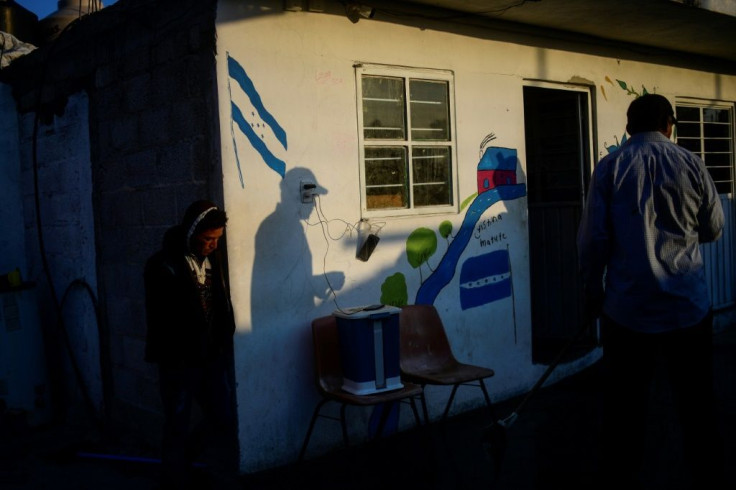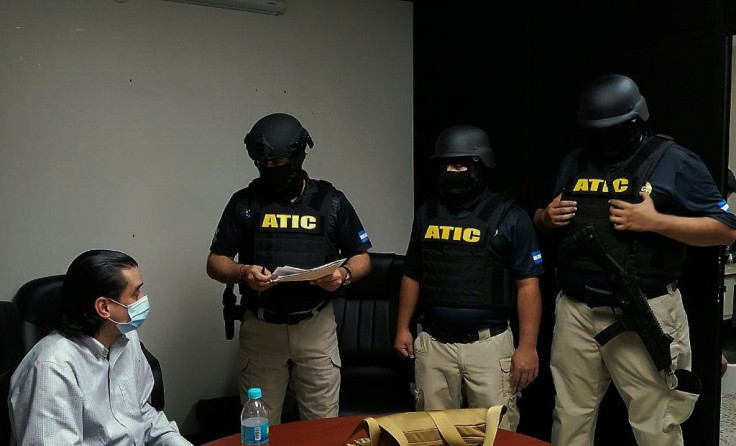US Envoy Targets Corruption To Stem Central America Migration
Faced with an exodus of Central American migrants seeking to enter the United States, President Joe Biden's administration is taking aim at what it sees as one of the key causes -- corruption.
"Corruption is driving so much of the instability and lack of development" that fuel migration, said Ricardo Zuniga, named by the Biden administration as the special envoy to the Northern Triangle of Guatemala, Honduras and El Salvador.
"So we have a strong national interest in ensuring stability and good governance in Central America. And we want to work with those who are pursuing that same set of interests," he told AFP.
"We understand that this migration will continue as long as those conditions exist."

Zuniga in early April traveled to Guatemala and El Salvador and met in Washington with Honduran authorities at a time when migration is providing political ammunition to Biden's opponents.
Around 172,000 undocumented migrants, mostly from Central America, tried to cross into the United States over the Mexican border in March, 71 percent more than the previous month, with a sharp rise in the number of children traveling alone.
Central Americans have been fleeing crushing poverty and surging violence as well as a rise in natural disasters.
Secretary of State Antony Blinken, in a speech Monday, also identified climate change as a factor in the destruction of crops and homes and resulting rise of hunger in Central America.

In his talks with Central American governments, Zuniga has been discussing setting up a task force on corruption led by the US Justice Department.
The task force will assist governments and public servants in Central America "as they pursue not only specific cases involving acts of corruption, but systems that help combat impunity and that help prevent corruption from taking place in the first place," Zuniga said.
"The concrete implementation is something that we are going to be negotiating with partners around the region," he said.
Zuniga said that Central America already had building blocks for ensuring greater transparency -- civil society, public prosecutors and an independent media -- and that US embassies were supporting their work.
Zuniga said the administration would make use of existing laws, including banning visas for those who perpetrate corruption, and would work with Congress on additional measures including producing a list of actors responsible.

According to Zuniga, Guatemala, Honduras and El Salvador all support a "strong presence" of the United States -- not just on economic support but on fighting the Covid-19 pandemic and recovering from last year's devastating storms.
"From the US perspective, that is all good," Zuniga said.
"Our work is to try to create the enabling conditions in Central America that will help alleviate not just economic and social conditions, but the political conditions as well, particularly as they relate to transparency and work against the corrupt actors."
But will the Northern Triangle nations also embrace action against corruption? Two bodies set up to fight graft -- run through the United Nations in Honduras and the Organization of American States in Guatemala -- were not renewed by the host governments.
"The United States was disappointed with the suspension of the activities of both of those missions," Zuniga said. "We believed that they were doing historic work in terms of identifying acts of corruption."
He said the United States recognized that Central American nations made their own "sovereign decisions" but said the commissions "had very strong popular support."
The cooperative nudging contrasts with the blunt approach under Donald Trump, who temporarily froze aid to all three countries to demand that they end migration -- a signature issue for the Republican former president.
The Biden administration has still been sending most migrants back to Mexico but has promised a more humane approach, including sheltering children in harm's way.
Zuniga said it was important, while still enforcing US laws, to focus on improving the legal pathways for migration -- and addressing the root causes.
"We need to create and help foster the conditions that are going to give people a reason to stay in Central America and build dignified, secure, prosperous lives at home," he said.
"Think about where we would be in terms of US commercial interests -- in terms of US social interests -- if we sought stable and prosperous conditions in Central America."
© Copyright AFP {{Year}}. All rights reserved.





















